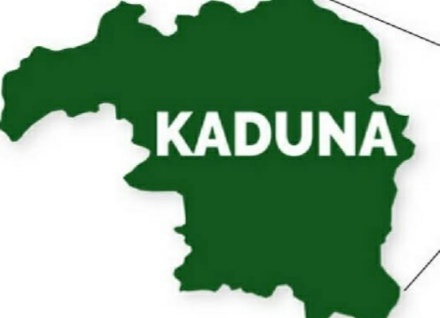The inability to develop a common vision for Nigeria by its leaders has over the years, created fears and anxiety, paving the way for the manipulation of citizens’ identities along several fault lines.
Similar to the challenges at the national level, there is the absence of a common vision among the various ethnic and religious groups in many states in the country.
In a state like Kaduna, the absence of a common vision and aspirations among the citizens of the state has allowed the utilisation of the different identities as a polarising factor.
This problem is more pronounced in the southern part of the state, where consciousness for social cohesion would have prevented misunderstanding and the resort to violence, as has repeatedly been witnessed over the past three decades in the state.
There is, for instance, the negative exploitation of religious differences between Muslims and Christians to trigger unnecessary tensions and fears that have little practical relevance to people’s livelihoods, needs and socio-cultural development.
Naira scarcity worsens as banks limit withdrawals, ATMs run dry
‘Bayelsa, Imo, Kogi governorship polls another missed opportunity’
In addition, there is the deliberate manipulation of public opinion along ethnic divides, especially between the Hausa and Fulani on the one hand and the other ethnic groups such as Bajju, Atyap, Nikyob (Kanikon), and Ham (Jaba) on the other hand.
As a consequence of the negative exploitation of identity and stereotypes, simple matters that could have ordinarily been amicably resolved have led to violent conflicts in the state.
For instance, the crisis in Zangon Kataf town in 1992 has its roots in contestations over the location of the market, which sadly became embedded along ethnic and religious divides. Similar contestations were at the heart of the Kasuwan Magani crisis in Kajuru LGA in 2018.
Despite the efforts of the government and other stakeholders in finding amicable and acceptable ways of resolving the disputes, the issues have remained largely unresolved in Zangon Kataf to the present day due to the existing divide among the citizens.
However, the problem in Kasuwan Magani has substantially been addressed due to the fact that ethnic and religious identities were downplayed, thereby allowing for the rebuilding and modernisation of the market.
An important reason for the escalation of tensions in many parts of the state often arises from competition over access to land and land resources, such as disputes over ownership of farmlands and territorial boundaries.
For these reasons, there are recurring rifts over the boundaries of chiefdoms between the different ethnic and socio-economic groups.
Additionally, there are contestations over the right of passage for cattle (stock routes), access to grazing areas, and water ponds, mostly between farmers and pastoralists. In some situations, the disputes are perceived from the ethnic and religious dimensions, making amicable resolution extremely difficult for the government and other concerned stakeholders.
Successive governments in Kaduna State have taken wide-ranging reforms to achieve the needed peace and unity.
One of such reforms is creating many chiefdoms to provide leadership and a sense of belonging to the diverse ethnic groups; opening up infrastructure; and creating development areas to augment existing local government areas to assuage the needs and fears of various interest groups.
The government had also in the wake of crises, deployed security agents to maintain law and order in areas witnessing violent conflicts and crimes, where perpetrators were apprehended and prosecuted for participating in violence.
In the aftermath of crises such as the Kafanchan riots of 1987; the Zangon Kataf market riots of 1992; the communal crisis between Bajju and Ikulu of 2001 and the post-2011 presidential election crisis, the government constituted panels or commissions of inquiry to investigate the disturbances, and the reports and subsequent white papers emanating from such reports offered recommendations to the government.
However, the implementation of the recommendations has always proven difficult because of the ethnic and religious differences that are associated with such disturbances.
Thus, people have worked against the implementation of white paper recommendations because of one clause or the other that has the potential of triggering new forms of agitation and political turmoil. So, implementing those recommendations is a huge political burden for many political leaders.
Organisations such as the Middle Belt Brain Trust (MBBT), which was established in partnership with the Institute of Integrated Transitions (IFIT) to contribute towards the management of diversity and sustainable development of communities and societies, have tried to intervene to find the best approach towards avoiding and managing conflicts.
The findings of the study conducted indicated similarity in ethnic and religious diversity between Nasarawa, Plateau and the southern parts of Kaduna State, revealing that the elite and political leadership in Nasarawa State adopted more inclusive and integrated approaches in the management of ethnic and religious diversity, which minimised the negative exploitation of the differences, thereby ensuring better social harmony and peaceful coexistence in the state.
For instance, one may find members of the same ethnic group, such as Eggon, Gwandara, Alago and Mada, belonging to both Christianity and Islam, with a near-equal split. For this reason, the ability to manipulate people along religious divides is less. In terms of the exploitation of ethnic differences, there is no single ethnic group that is dominant and can have it on its own in the state.
Drawing from experiences elsewhere, the approach that a heterogeneous state like Kaduna needs to take in managing diversity and ensuring amicable resolution of disputes must be all-encompassing and sensitive to the divergent narratives and perceptions that perverse the different parts of the state.
The state must formulate a vision for sustainable peace, security, social and economic development that will form the basis for engaging with the different stakeholders, including public institutions, the organised private sector, civil society organisations, and development partners to finance and support the process.
The Kaduna State Peace Commission was established in 2017 to adopt proactive measures in the development and implementation of strategies that would promote peace and harmonious coexistence by carrying out non-violent conflict prevention interventions.
Working with diverse stakeholders across the state, the commission is currently spearheading efforts to formulate a vision for sustainable peace and social harmony by engaging the people of the state to embrace the values of peaceful coexistence and entrench the culture of social cohesion.
The strategic framework developed by the commission enables the state and its institutions to adopt proactive and inclusive interventions so as to create a sense of belonging as well as patriotism in the minds of all people.
The commission also convenes periodic meetings, thereby creating robust platforms that bring people together to discuss perceived differences and amicably resolve the issues in a non-violent manner.
Similarly, all ministries, departments and agencies of the state government are supported and encouraged to ensure that conflict sensitivity and peacebuilding are mainstreamed in all the activities and programmes of the government.
The role of traditional rulers, including the ward heads, village heads, and district heads, in alternative dispute resolution processes is being strengthened. There is increased participation of traditional leaders in security matters at the community level.
The traditional authorities are increasingly participating in raising awareness about government policies and promoting peaceful coexistence within their domains.
Once ordinary citizens are engaged and the palpable and unfounded fears often promoted by some elitist groups and political activists are erased from the minds of people, confidence is easily restored, which is essential for cordial relations.
In these initiatives, youth and women are active participants in the entire process, with clearly defined roles in the management of conflicts.
Similarly, the private sector is also being supported by the state government to create an entrepreneurial development system to provide jobs and opportunities for gainful employment through economic development investments.
Through these approaches, it is believed that lasting peace will be attained in the state.
Dr Momale is the Vice Chairman/Chief Executive Officer of Kaduna Peace Commission

 Join Daily Trust WhatsApp Community For Quick Access To News and Happenings Around You.
Join Daily Trust WhatsApp Community For Quick Access To News and Happenings Around You.


